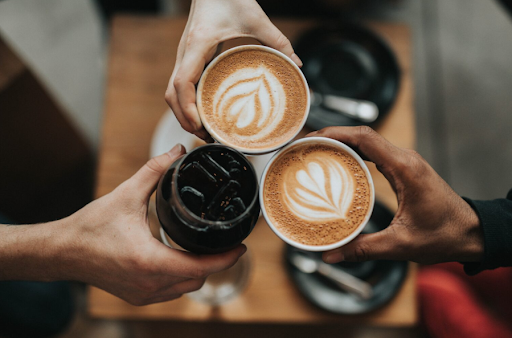Walk into a café in Johannesburg on a Monday morning. The place hums. The grinder rattles. Steam hisses from the espresso machine. People shuffle in, eyes half-closed, phones in hand. Somewhere, beans are cracking and turning brown. That sound is ordinary. But behind it, a coffee company in South Africa is doing something far from ordinary. They are telling stories—quiet, stubborn stories about people, places, and soil. Not every cup matters, but the ones that do? They carry weight.
The Quiet Revolution in South African Coffee
Coffee used to be functional here. A spoon of instant in a mug. Quick. Forgettable. No one cared much about origin or roast. And then, slowly, things shifted. A few cafés opened, curious baristas appeared, people started noticing differences—notes, acidity, body. Questions followed: Why are these beans bitter? Why is this one bright, fruity?
Roasters started traveling. Ethiopia. Rwanda. Burundi. Not as tourists. Not as buyers. But as learners. Bringing back beans, ideas, and a respect for craft. Each coffee company in South Africa began staking a claim. Some focused on local roasting. Others on ethical sourcing. Some experimented with blends you’d never imagine pairing together. The shift wasn’t about marketing. It was about refusing to settle.
Roasting: An Uneven Craft
Roasting looks simple from the outside. Beans in a drum. Heat applied. Out comes coffee. But inside those roasteries—Woodstock, Cape Town, or Glenwood, Durban—it’s a quiet theatre. Thermometers, timers, smell, touch. One crack, and the bean sings. Miss it, and it’s burnt.
Some roasters chase brightness. Others depth. But no one follows a rulebook. The smell changes every batch. The beans shift subtly depending on humidity, altitude, even the wind. It’s messy. Human. Perfectly imperfect. That’s what makes the coffee alive.
Ethics You Can Taste
People notice now. More than ever. Coffee isn’t just flavor. It’s who grew it, and whether it was fair. Many local roasters travel to farms, shake hands, negotiate honestly. Prices aren’t fixed by markets—they’re fixed by respect.
The effect ripples back. Healthier soil, better care, cleaner washing stations. The beans? They taste different. Stronger. Fuller. Richer. And it’s not just about taste. Back in cafés, composting bins, solar roasting, and reusable cups quietly show the same care. Coffee doesn’t come from factories. It comes from people, soil, and patience.
People and Spaces
Baristas are central. They aren’t just pouring milk. They’re storytellers, chemists, and sometimes therapists. They notice if a bean is off. They adjust grind, time, temperature. They talk to regulars by name.
Cafés themselves have become living spaces. Students typing on laptops, friends talking loudly in corners, a painter sketching a mural in the back. In Durban or Pretoria, these cafés are social glue. Coffee here doesn’t just wake you up—it connects you.
Community and Culture
Coffee has become a hub for connection. Not just caffeine. Workshops. Book clubs. Open-mic nights. Students studying. Friends laughing. Families gathering. Musicians testing new songs. The aroma of roasted beans mixes with conversation. It creates a texture of life, intimate and alive. A café becomes a space of belonging, where stories and ideas collide over a cup of coffee.
Challenges That Shape Growth
The industry faces real challenges. Import costs are high. Exchange rates fluctuate. Weather affects harvests. Small roasters compete with global chains. Yet these obstacles inspire resilience. They form partnerships. Share resources. Mentor newcomers. The obstacles shape character. They shape flavor. They shape stories that pour into every cup.
Conclusion
A coffee company in South Africa is more than a business. It’s craft, people, and stories combined. Each cup carries choices—from the farmer to the roaster, from the barista to the drinker. No one here copies anyone else. Every cup claims identity. Imperfect, human, proud. And that imperfection is what makes it unforgettable. Every sip tells a story, deeply local, entirely ours.


